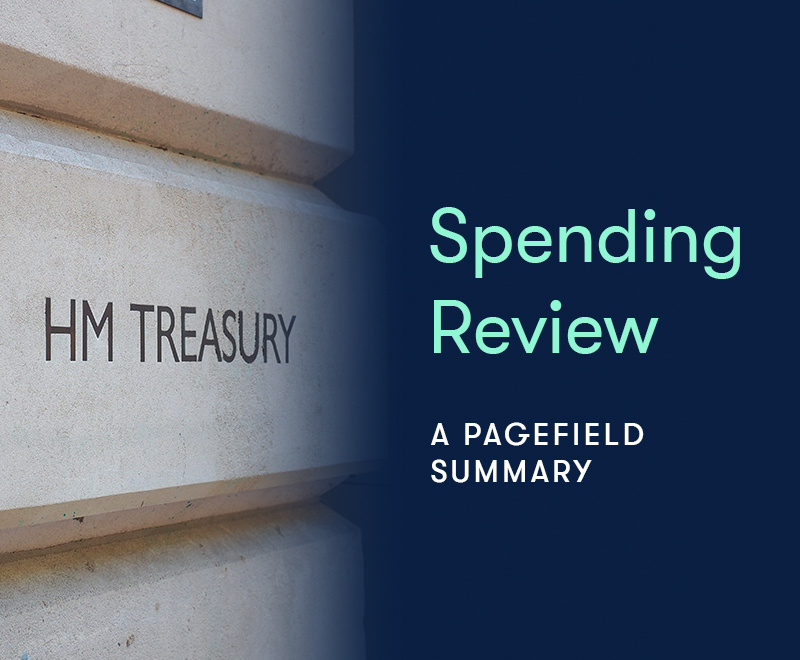It was sad to read research done by PR Week/CIPR/Opinium recently which found that 9/10 PR professionals have suffered with their mental well-being in the past 12 months. This is a picture we know all too well.
The findings echo comments from Paul Farmer, CEO of MIND, when he spoke to Pagefield last year. He warned that the scale of mental health problems created by the pandemic and lockdowns has been a cause for significant concern. Paul predicted that without significant intervention, the mental health legacy of the pandemic could present another potential public health crisis in the making, and one that sadly there is no vaccine for.
Whilst there is no getting away from the scale of the challenge this presents to our industry and society more widely, Alistair Macapra, CEO of CIPR, described the research findings as “a call to action,” reminding us all that the “the power to improve the mental health of our employees and colleagues is in our hands.”
Here at Pagefield PR Agency we place a heavy emphasis on making sure team wellbeing is always prioritised, and that people have the support they need to look after their wellbeing. So what can you do to support your own and your colleagues’ mental health?
Be aware of workplace factors that can adversely affect mental health
Most of us are aware that our mental health can come under the most strain when our workload exceeds what it should be for an extended period of time. However, it is not just the volume of work that affects us when things are feeling like they’re a bit ‘too much.’
Scrutiny, responsibility, pressure to deliver results, or workplace politics can have similarly detrimental effects when they become persistent. As a manager or colleague, it’s important to be wary of the ways in which work can tip into the unhealthy and intervene to redress the balance when any of these factors are out of kilter.
Look for early warning signs
Awareness is the first step to addressing any mental health challenges both in ourselves and in others. There are often noticeable changes that can signal when someone’s mental health has shifted into a strain zone.
These may be physical manifestations like headaches, stomach upsets, sleeplessness, or behavioural ones like irritability, low mood, forgetfulness, crying or withdrawal. We can help each other by noticing these changes and then checking in.
Open up a conversation
Discussing our mental health in the workplace is no longer taboo – this is something we should all be thankful for. However, we’re all aware that speaking out can still feel uncomfortable. As a manager or colleague, we can worry that asking about someone’s wellbeing will feel intrusive. When we’re suffering, we can worry that in opening up a conversation about how we’re feeling, we may be burdening someone who may view you through a professional lens.
So how can we push through the awkwardness and open up a conversation about mental wellbeing with a colleague we are concerned about? The first tip is to be fully present – if your body language suggests you are not really listening or comfortable, it will reinforce the feeling that the other person shouldn’t be opening up to you.
The next is to remember that you are listening to learn, not listening to speak next. Avoid offering solutions – that’s not your role. The best and most helpful thing you can do is to listen and signpost help where appropriate.
Prioritise and protect ‘down’ time
PR and public affairs is a 24/7 industry – when the media or politics is your work, it can be difficult to switch off during ‘out of work hours’. Having restorative time is fundamental to wellbeing. It’s important to take time out to rest and recharge after busy periods. This can be as simple as taking a proper lunch break, or using your full holiday entitlement at regular intervals throughout the year.
Consider what impact you’re having when emailing colleagues outside of working hours or checking in on work-related issues during holidays. Whilst the rise of hybrid and flexible working has so many positives, the blurring of our work and home lives has made it much more difficult to maintain clear boundaries.
Nurture relationships
Our relationships have an immeasurable impact on our wellbeing in the long-term. People find it much easier to navigate the inevitable peaks and troughs of working life when they have meaningful connections and positive relationships at work. Studies of resilience within teams have found that having friendships helps to prepare us for the more difficult things that work throws at us. Make time for social connections, and non-work conversations, and show interest in the people you work with.
With lots of speculation around further restrictions, the return to working from home for many and just the fatigue of starting off another new year with the pandemic weighing heavy, prioritising our mental health and checking in on those around us is more relevant than ever



